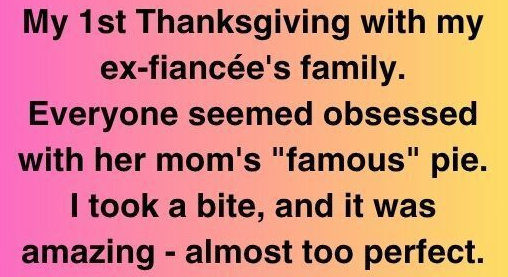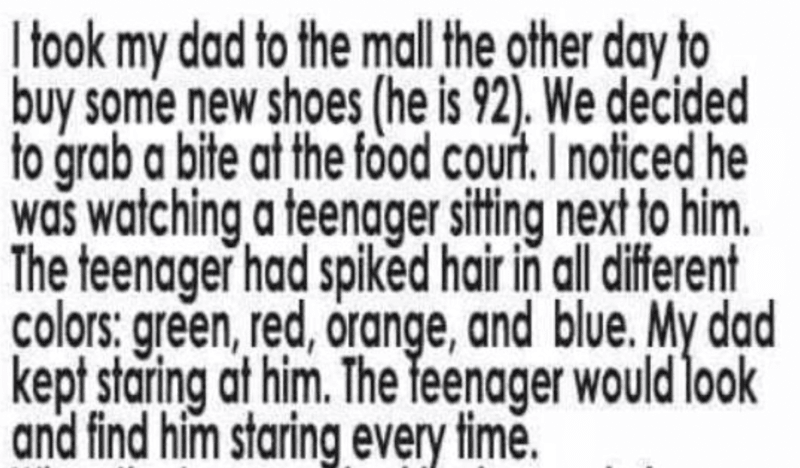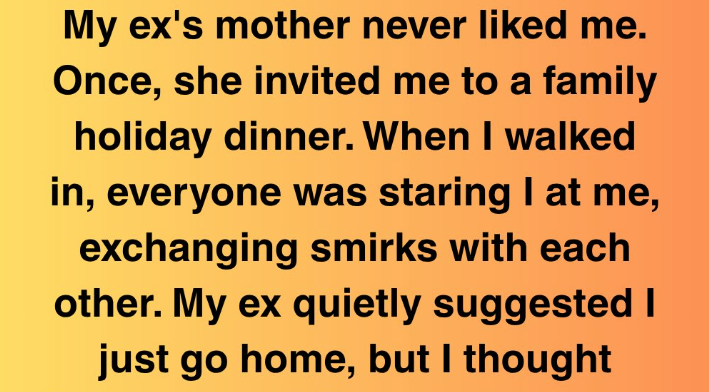My first Thanksgiving with my ex-fiancée’s family was unforgettable. The air buzzed with excitement over her mom’s “legendary” pie. I took a bite, and it was extraordinary—almost impossibly flawless. Later that evening, a glint in the trash caught my attention. Curious, I reached for it, and a chill ran through me. It was a packet of store-bought pie filling.
Initially, I wondered if I was making too much of it. After all, shortcuts are common in busy kitchens. But this wasn’t an ordinary pie. This pie carried a reputation. Diane, my fiancée’s mom, spoke of it as if it were her crowning achievement. At the dinner table, she shared a heartfelt story about crafting it from scratch, just as her own mother had taught her.
The deception wasn’t what unsettled me most. It was the way everyone gazed at Diane, as if she were a culinary icon. My fiancée, Lara, leaned in and murmured, “See? I told you my mom’s pie would amaze you. She’s the best baker ever.”
I nodded, each bite heavy with unspoken truth. How could I say, “Actually, love, your mom’s pie came from a grocery store shelf?”
It wasn’t only the pie. That shiny packet opened my eyes. Over the next few days, I noticed more inconsistencies. Diane’s celebrated stuffing recipe? I spotted a half-used box of instant mix tucked behind paper towels in the pantry. The “homemade” cranberry sauce? Straight from a can, dressed up with a sprinkle of orange peel.
Yet none of that would have mattered if not for what happened next.
On Saturday, two days after Thanksgiving, Lara and I sat on the porch, sipping coffee. The air was crisp, and she wore her dad’s old flannel jacket. She scrolled through her phone, a smile spreading across her face.
“Mom’s pie is trending again,” she said, passing me her phone. “FoodieFam shared it. Thousands of likes already.”
There it was: a beautifully staged photo of that famous pie. “Crafted with care,” the caption read. “A cherished family recipe handed down through generations.”
I couldn’t hold back. “Why does your mom act like she makes it from scratch when she doesn’t?”
Lara’s smile faded. “What are you saying?”
I paused, but the truth tumbled out. I mentioned the pie filling packet, the stuffing mix, and the canned cranberry sauce. I kept my voice soft, but there was no gentle way to frame it.
She pulled the flannel closer and stood. “So what? Are you trying to spoil Thanksgiving? Does it matter if she uses shortcuts? Everyone loved the meal.”
“I’m not saying it wasn’t delicious,” I replied. “It’s just… it feels dishonest. She presents it as this sacred family tradition.”
Lara shook her head. “You don’t understand. You didn’t grow up here. You don’t know what it means to us.”
She walked inside, leaving me alone on the porch, feeling like I’d shattered something fragile.
We barely spoke for the rest of the day.
That evening, I helped her dad, Ron, string up Christmas lights. He was a man of few words, only speaking when prompted. It seemed like a chance to reconnect.
“Hey, Ron,” I said, handing him some clips. “Lara mentioned Diane’s been making that pie since she was young?”
Ron gave a soft laugh. “That’s her story.”
I raised an eyebrow. “Is it true?”
He glanced at me, then at the tangled lights in his hands. “Here’s the thing, son. Diane’s always cared about appearances. Likes things to seem perfect. Always has.”
I nodded, unsure how to respond.
“Doesn’t make her a bad person,” he added. “Just means she cares a lot about what people think.”
His words lingered.
Over the next few weeks, tension grew between Lara and me. Whenever I mentioned the future—wedding plans, moving in together—she’d steer the conversation elsewhere. Finally, I asked her what was wrong.
“I don’t know,” she said one evening, nudging her food around her plate. “I thought you cared about my family. But now it feels like you only see their flaws.”
I sighed. “I do care about them. But caring doesn’t mean ignoring what’s not real.”
A week before Christmas, we called off the engagement.
It was calm. No yelling, no chaos. Just… stillness.
She handed back the ring and said, “Maybe we’re from different worlds.”
I nodded, hiding the ache. “Maybe we are.”
We didn’t speak for nearly a year.
Life continued. I started a new job, moved to a new city, and tried dating again, though nothing felt meaningful. But every Thanksgiving, my mind drifted back to that pie. Not just the filling, but the whole illusion. The weight of appearing perfect. The way it fractured something I thought was unbreakable.
Then, in early November the following year, a message arrived.
From Lara.
“Hey. Odd question—do you still know how to hang Christmas lights?”
I stared at the screen before responding.
“Yeah. Why?”
She replied: “Dad’s not doing well. I’m heading home for Thanksgiving. Thought… if you’re nearby, you could help.”
Weeks later, I pulled into her parents’ driveway.
Ron looked thinner, slower, but his smile was warm when he saw me. “Thought you’d be smarter than to come back,” he teased.
Diane greeted me quietly, with a polite nod. The atmosphere was cautious, not hostile, but careful.
Lara and I worked together hanging the lights. At first, it was stiff, but gradually, we found our old rhythm.
She shared that she’d ended things with her last boyfriend in the spring. “He loved how ‘perfect’ I seemed,” she said, using air quotes. “Didn’t like when I wasn’t.”
I admitted I hadn’t dated seriously since her. “Hard to beat someone who can pull off the world’s best fake pie,” I teased.
She laughed, the sound easing the tension.
On Thanksgiving morning, Diane surprised me. “Want to help in the kitchen?” she asked.
She handed me a tray of apples. “This year, I want to make it for real.”
I looked at her, puzzled.
She sighed. “Lara told me about the packet. And the stuffing. And the sauce.”
I stayed silent.
She kept peeling apples. “I started using shortcuts years ago to save time. Then people praised me, and it felt good. I didn’t want to lose that, so I leaned into it.”
I nodded. “I get it.”
“But after you left,” she said, “I started wondering. Why was I trying so hard to impress people who already cared about me?”
We baked together. From scratch. No shortcuts.
And you know what?
The pie wasn’t flawless. The crust was a bit dense, the filling a touch too tart.
But everyone at the table smiled, chewed, and nodded.
“This,” Ron said, “tastes like home.”
And it did.
Lara and I didn’t rekindle things that weekend. But we talked. A lot. When I left, our hug lingered.
Months later, she visited me in the city. We strolled through parks, cooked meals together, and shared pieces of our new lives. It was different. More open. Less performative.
That summer, we started dating again. Slowly. On our own terms.
This time, no pretense. No need to be “perfect.”
A year later, we married in her parents’ backyard. No caterers. Just family recipes—authentic ones. Especially the pie.
The best things in life aren’t the ones that seem flawless. They’re the ones crafted with intention, shared with honesty, and enjoyed with the people who matter—even if the crust is uneven or the filling’s a bit off.
Here’s the truth: sometimes what appears perfect is just a shiny packet in the trash. And sometimes, the messiest realities lead to the most meaningful moments.
Don’t shy away from looking deeper. Ask questions. Bake the real pie.
Because love—the true kind—thrives without shortcuts.
If this story warmed your heart, sparked a thought, or reminded you of your own family traditions, give it a like and share it with someone who appreciates a slice of honesty (and pie). 🍂🥧




